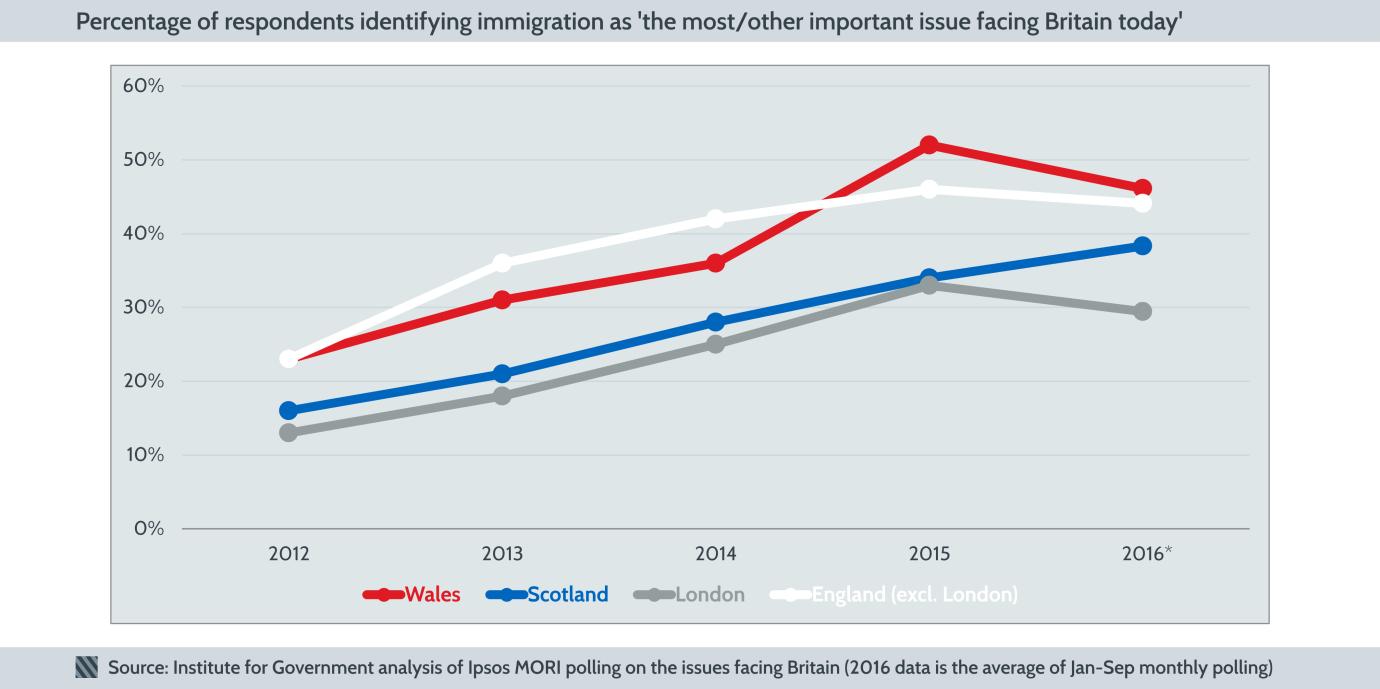Brexit: How immigration powers could be devolved
There continues to be significant debate over UK immigration policy
There continues to be significant debate over UK immigration policy, and what price the country may pay for imposing restrictions on EU migrants in terms of Single Market access. Aron Cheung says this issue divides the UK and devolved governments, and looks at the radical solutions proposed.
Repatriating powers over EU migration is emerging as a priority for Theresa May’s government. While the Prime Minister claimed that talk of a '"trade-off" between controlling immigration and trading with Europe… is the wrong way of looking at things’, her party conference speech heavily implied that the former will take priority over the latter.
Engaging with devolved governments
While the UK Government will lead the Brexit negotiation process, leaving the EU will have a significant economic and social impact in the devolved nations and regions. Devolved leaders are therefore attempting to influence the UK Government’s negotiating position, and beyond Westminster priorities are different.
The Scottish First Minister, Nicola Sturgeon, and London Mayor, Sadiq Khan, have stressed the importance of protecting Single Market membership, while the Northern Irish Government has called for access to both EU markets and labour to be retained. Meanwhile in Wales, the First Minister, Carwyn Jones, said that ‘full and unfettered access’ to the Single Market is a more important issue than immigration.
A recent IfG report argued that the existing framework of intergovernmental relations will need to be strengthened in order to resolve the differences which have arisen over Brexit, and warned of a possible constitutional crisis if a consensus cannot be reached. Reaching agreement on reform of free movement of people will be a key test of whether the governments are up to the task.
‘Taking control’ from Westminster
If consensus cannot be reached, an alternative approach could be to devolve aspects of immigration policy, as proposed in Scotland and London. Nicola Sturgeon has contrasted Scottish attitudes to immigration with the tone south of the border, calling for the devolution of ‘greater powers over immigration… not just to protect our economy, but also our values’.
Sadiq Khan has similarly lobbied for the introduction of London-only visas to ‘ensure we can carry on recruiting and attracting talent’, with the City of London Corporation and the London Chamber of Commerce and Industry throwing their support behind the idea by publishing separate proposals on how this might work. Both leaders want powers to create a visa regime tailored to local economic priorities and public attitudes. Opinion poll data shows that while concern for immigration has risen in all parts of the UK in the last five years, it is consistently of less concern to residents in Scotland and London.

Opinion is mixed on the practicality of devolving immigration powers. A Scottish Affairs Committee report found ‘compelling evidence’ that the challenges of introducing Scotland-only post-study work visas could be overcome. The Government responded that they ‘do not consider a Scotland-specific visa scheme to be in the best interests of the integrity of the immigration system’.
Similarly, former Immigration Minister Mark Harper argued at a recent IfG event that devolving aspects of immigration policy would be impossible without introducing internal borders Devolving immigration powers might also undermine attempts to control net migration on a UK-wide basis, and the long-term status of regional immigrants (including their eligibility for UK citizenship) would need to be established.
The benefits and risks of devolving aspects of immigration policy can be observed in Canada, where provincial governments can set their own selection criteria to nominate immigrants who are then required to live and work within that province for a period of time. This enables provinces to attract immigrants who meet specific requirements in terms of skills or language (in the case of Quebec), and immigrants have been more evenly dispersed across provinces since the programme was established. On the other hand, the percentage of immigrants still living within the nominating province after two years varies significantly across provinces, indicating that attempts to retain immigrants within a specific province may not always be successful. Similar regional arrangements exist in Australia, although this is less central to its immigration system.
Pathway to consensus
The UK and devolved governments have different views on immigration policy and the extent to which ending free movement should be prioritised in upcoming negotiations with the EU. This will be a major issue to resolve through intergovernmental dialogue in the run-up to Article 50 being triggered. One possible solution would be to devolve aspects of immigration policy; however this would face significant political and practical hurdles.
- Topic
- Brexit Devolution
- United Kingdom
- Scotland Wales Northern Ireland
- Political party
- Conservative Scottish National Party Labour
- Position
- Home secretary First minister of Scotland First minister of Wales First minister of Northern Ireland Deputy first minister of Northern Ireland Mayor of London
- Administration
- May government
- Devolved administration
- Scottish government Welsh government Northern Ireland executive
- English Regions
- Greater London
- Combined authorities
- Greater London Authority
- Publisher
- Institute for Government